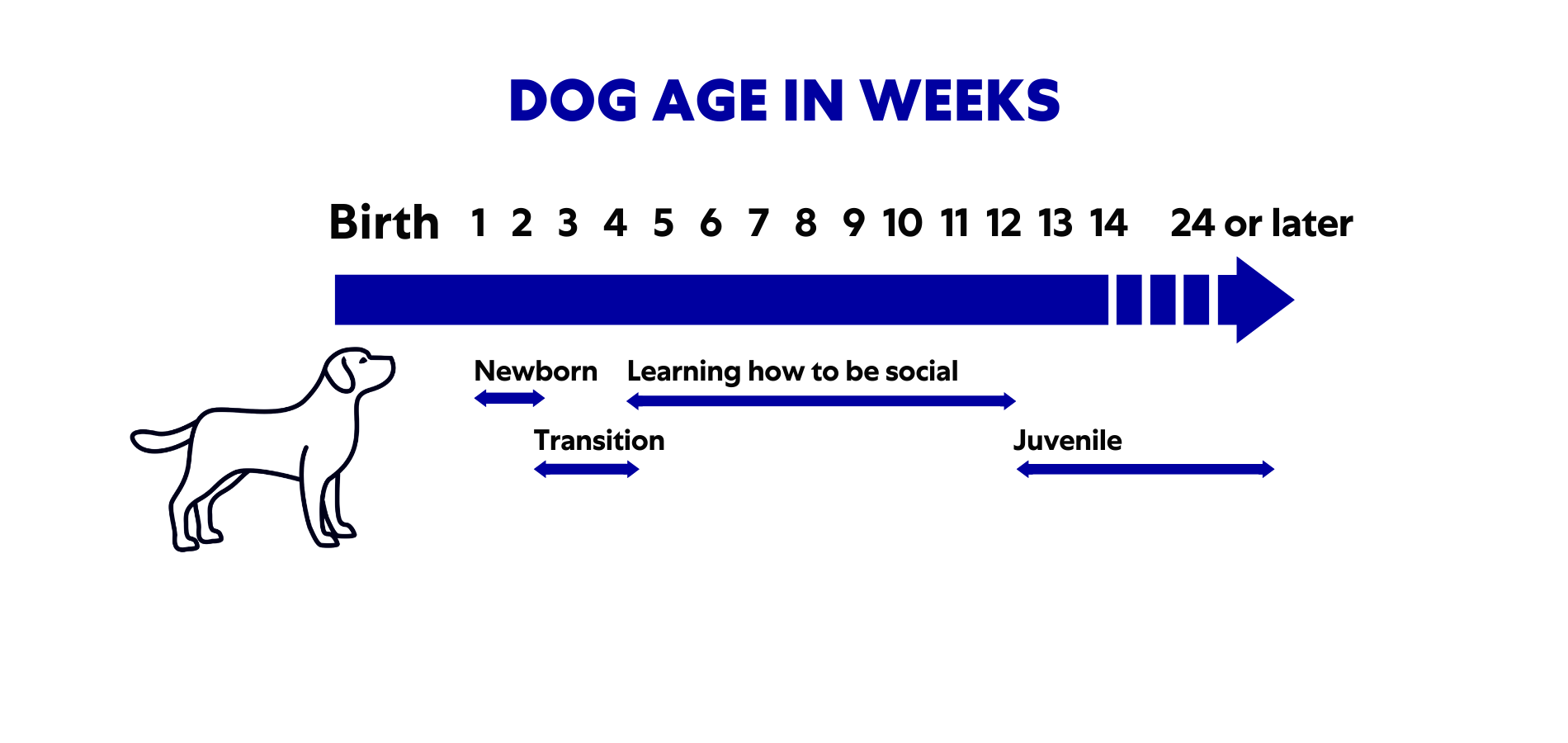
Nutrition
Welfare and Behaviour
6 things you need to know about puppy care
Puppyhood is a critical time for our four-legged companions. How a puppy is fed and cared for at this early stage plays a crucial role in their overall health and wellbeing as they mature into adulthood.
1. Puppies require a complete and balanced diet
Puppies have different nutritional needs from adult dogs. These needs depend on the puppy’s breed, age, and neutered status. Puppy growth is fast in the first few months, and so they should be fed a complete and balanced diet until they reach adulthood. They require a balanced diet of specific nutrients: amino acids, proteins, minerals, fats, and vitamins. Switching to an adult diet too early can slow a puppy’s development and have negative long-term effects that carry on into adulthood.
Recommended: Guide to essential nutrition for cats and dogs
2. Monitoring your puppy’s healthy growth
More than half of all pets in the US and the UK are considered overweight or obese. Excessive weight is associated with a number of health risks including joint problems, cancers, diabetes, and respiratory dysfunction, and can reduce the lifespan of dogs. To keep pets at a healthy body weight, it’s important to follow the recommended feeding guide for your pet’s life stage and lifestyle, making minor adjustments according to the individual pet. Knowing your pet’s genetic makeup can also help you find the right balance of nutrition and care they require.
Understanding what your puppy's ideal adult weight will be and using it as a reference will help you monitor your puppy's healthy growth. Tools like our growth charts can help you understand if your puppy's growth is on track.
Recommended: 4 ways to understand and monitor your pet’s normal weight
3. Never too early to socialise them
Eight weeks is a good time to home a puppy, as this is still within the window of socialisation, when the puppy is most receptive and adaptive to new experiences. You can help the puppy adapt to the new surroundings by using an item that contains a mother’s scent - for example, a piece of bedding, which can help provide a familiar environment when puppies enter their new home.
From 3 to 12 weeks of age, young puppies are highly susceptible to the benefits of socialisation. Introducing the puppy to different people, dogs, objects and situations can help them grow into a happy, healthy dog. All these things should be encountered in a positive way so puppies do not become frightened.
Recommended: How to socialise a puppy during lockdown

4. Reward good behaviour
It’s never too early to start training a puppy, but remember very young ones get tired and distracted easily. Good training starts by rewarding good behaviour and ignoring unwanted behaviour. Most dogs crave attention and even negative attention, such as scolding or shouting, can be rewarding and encourage further unwanted behaviour. Some of the basic commands every dog should learn are: sit, down, stay, come, heel, off, and no. If a puppy develops behavioural problems, it is best to speak to a veterinarian who can give a health check and offer advice. Veterinarians can also refer puppies to behavioural specialists who can take a complete and detailed history, explain the motivation for the problem behaviour, and help develop a treatment plan.
5. Exercise is essential for healthy growth
Dogs are intelligent animals and require mental stimulation. Exercise is a good way of fulfilling this need - it’s important for all puppies but particularly for highly active or working breeds. It’s also important that owners follow the recommended amount of exercise a puppy receives while they are growing to minimise the risk of developing joint problems. Large breed puppies, for example, take longer to reach maturity and commonly suffer from joint problems such as hip dysplasia. Consult your veterinarian for the right amount of exercise your puppy should get.
6. Puppies need regular veterinary care
Regular veterinary care and attention throughout the dog’s life is key to our four-legged companions’ healthy, happy lives. To ensure growing puppies remain fit and healthy through adulthood, owners should discuss weight management, nutrition, vaccinations, parasite control and neutering with their veterinarian, as well as any other concerns they may have.
Recommended: How to make veterinary visits less stressful for your pet





